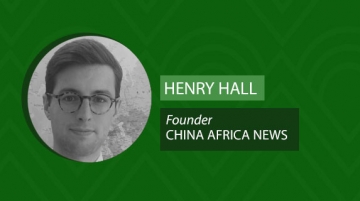
For decades, the aid and development sectors in Africa have been dominated by Western countries who have channeled billions of dollars through international organizations like the World Bank, IMF and the United Nations. Today, amid anemic economic growth in the U.S. and Europe combined with surging anti-globalism, those once generous development budgets are now in jeopardy.
Largely immune from the populist impulses that challenge Western leaders, the Chinese government now appears to be moving quickly to fill the void by significantly increasing support of multilateral institutions across the continent. In West Africa, the Chinese are spending millions of dollars to support an ECOWAS rapid reaction force, PRC medical personnel played a central role in containing the 2014 Ebola outbreak and there are now more Chinese peacekeepers on duty in Africa than from any other permanent UN security member country.
“The largest amount of [Chinese] aid funding goes towards the transport, storage, energy and communications sectors. A significant share, about 70%, is geared towards infrastructure development”
China’s embrace of multilateral diplomacy in Africa is a relatively new phenomenon. For years, Beijing rejected the Western aid model, preferring instead to work bilaterally with African governments where they often employed aid (or infrastructure) for resource deals. Many of those early policies were born from China’s own development experience in the late 20th century, specifically Japanese aid-for-resource deals, and largely avoided engagement with the traditional donor agencies.
By some measures, China is now one of Africa’s largest sources of development aid, spending tens of billions of dollars for post-conflict stabilization, agricultural development, telecommunications and, of course, infrastructure, lots and lots of infrastructure. “The largest amount of [Chinese] aid funding goes towards the transport, storage, energy and communications sectors. A significant share, about 70%, is geared towards infrastructure development,” according to scholars at the University of Pretoria and the University of South Africa.
Among all the various international donor agencies, the United Nations appears to be playing an increasingly important role in China’s development agenda in Africa. After years of sitting on the sidelines of UN-led development initiatives, China’s newfound enthusiasm for these programs in Africa is a welcome change, said Nicholas Rosellini, head of the U.N. delegation in China.
Nicholas joins Eric & Cobus to discuss how the United Nations fits into China’s overall African development strategy and what impact China’s more prominent role in global aid will have on the UN in the future.
Show Notes:
- Oxford Academic: A Bigger Bang for a Bigger Buck: What China’s Changing Attitude Toward UN Peacekeeping Says About Its Evolving Approach to International Institutions by Meicen Sun
- The Conversation: How and why China became Africa’s biggest aid donor by Kafayat Amusa, Nara Monkam and Nicola Viegi.
- Xinhua: China’s aid through UN system changing lives in Africa
About Nicholas Rosellini: Nicholas Rosellini (Italy) took up his assignment as the UN Resident Coordinator, and UNDP Resident Representative in the People’s Republic of China in October 2016.
Nicholas Rosellini (Italy) took up his assignment as the UN Resident Coordinator, and UNDP Resident Representative in the People’s Republic of China in October 2016.
Prior to this, he served as UNDP Deputy Assistant Administrator and Deputy Regional Director for Asia and the Pacific since January 2009, and most recently also as Director of the Bangkok Regional Hub. Nicholas has also served as UN Resident Coordinator/UNDP Resident Representative in Bhutan (2005-2008); and previously in various capacities in UNDP including: Director, Office of the Assistant Administrator (2000-2005); Deputy Resident Representative, Viet Nam (1996-2000); Assistant Resident Representative, Pakistan (1992-1996); Programme Advisor, Ethiopia (1989-1992); and Programme Officer, Ghana (1986-1989).
Nicholas holds a Master’s degree in Economics from the London School of Economics and a Bachelor’s degree in Economics from Bristol University in the United Kingdom.







